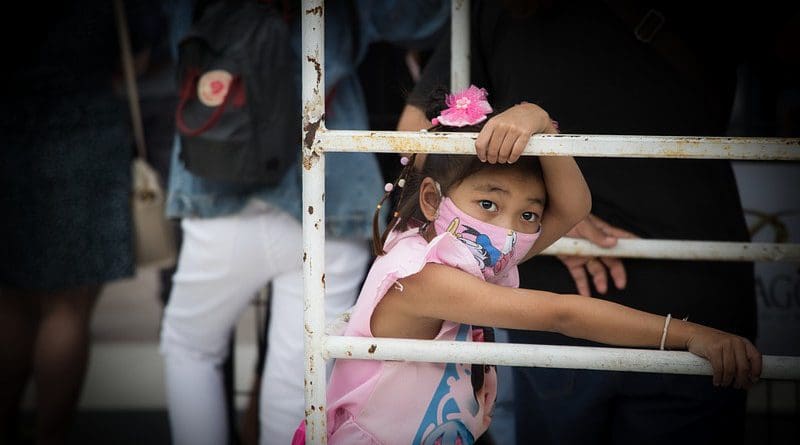In China’s ‘Vaccine Diplomacy’ With The Philippines Both Sides Are Taking Big Risks – Analysis
By Jason Hung*
The Philippines, with close to 110 million people, has been one of Southeast Asia’s hardest-hit countries by COVID-19, with more than half a million cases and 11,500 deaths reported as of mid-February. Facing criticism that it has been slow to secure supplies of vaccine against the virus, the national government has also become one of the biggest advance buyers of Chinese-made vaccines.
Recently Philippines officials announced that the country has preordered some 25 million doses of vaccine produced by the private Chinese company Sinovac. The first batch of 600,000 doses is due to arrive in the next few weeks, even though Philippine health authorities have not yet authorized the drug. Preliminary data from clinical trials of the vaccine has suggested that it is not as effective as the more advanced vaccines now being distributed in the West. It is, however, less expensive and relatively easy to store, both pluses for less wealthy countries.
During a swing through Southeast Asia in late January, Chinese Foreign Minister Wang Yi announced that Beijing would donate 500,000 doses of the vaccine to the Philippines cost-free, along with providing enhanced economic aid. Similar Chinese “vaccine diplomacy” is playing out elsewhere in the developing world.
Mutual gamble
Desperate to contain the public health crisis, Philippine leaders appear willing to gamble both on China’s less proven but more affordable alternative, and on becoming more beholden to Beijing, which lays claim to swaths of islands long considered to belong to Manila.
China, however, also has a lot at stake. A successful rollout of its vaccines in the Philippines would open the door to other countries in Southeast Asia and beyond, as more developing countries seek to strengthen their economic partnerships with Beijing in exchange for vaccine supplies.
If, however, Sinovac and other Chinese vaccines prove to be largely ineffective or to carry serious side effects, Beijing’s attempt to promote its vaccine to the developing world could be at risk. Thus, China is relying on the Philippines’ vaccine market as a kind of enormous drug trial to underpin global distribution.
High-interest diplomatic debts
It is worth noting that the Philippines is increasingly dependent economically on China, which is its largest trading partner and source of foreign investment. Trade between the two countries grew an average of 17 percent per year between 2014 and 2019, reaching nearly $50 billion annually.
When China employed its ‘mask diplomacy’ initiative early in the pandemic, it reportedly required countries receiving protective equipment aid to praise China’s public health transparency and humanitarian measures. It’s certainly plausible that Beijing will employ a similar approach with its vaccines.
In the long-term the Philippines may well wind up holding high-interest geopolitical debts for accepting Beijing’s help in overcoming the health crisis and its economic harm. But with its COVID-19 death toll soaring and its financial capacities limited, the country likely has no better alternative to preordering Chinese vaccines in the hope that mass inoculation will save lives and speed fiscal recovery.
Most other Southeast Asian countries, with the exception of hardest-hit Indonesia, have so far been reticent to rely on Chinese vaccines. But if Sinovac’s product is proven to work in the Philippines a number of neighboring countries may follow suit in preordering more—and, ultimately, in becoming more economically and politically reliant on Beijing.
*Jason Hung ([email protected]) is a PhD candidate in sociology at the University of Cambridge and a contributing columnist to the South China Morning Post and The Diplomat. He is a past participant in East-West Center’s International Graduate Student Conference.

